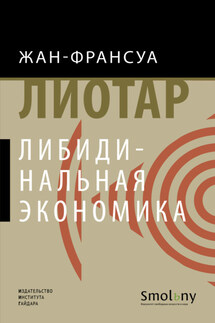Английский язык для юристов. Предпринимательское право - страница 6
3. Can it be called an acceptance when the offeree changes the terms?
4. What does the mutual assent suppose?
5. In what cases do people have the right to abandon their contracts?
6. What is a consideration and why is it an important element of a contract?
7. What makes the contract illegal?
8. Can quasi-contract be called a contract in the true sense of the word?
9. What is the contract of record?
Exercise 2. Find in the text English equivalents to the following:
Явно выраженный договор; подразумеваемый договор; лицо, по отношению к которому принято обязательство; кредитор по обязательству; лицо, принявшее на себя обязательство; должник по обязательству, дебитор; кредитор по договору; должник по договору; договор, не могущий быть принудительно осуществленным в исковом порядке; оспоримая сделка; ничтожная сделка.
Exercise 3. Consult recommended dictionaries and give words or phrases to the following definitions:
Возмездный договор; безвозмездный договор; публичный договор; предварительный договор; договор в пользу третьего лица; толкование договора; простая письменная форма договора.
Exercise 4. Be ready to talk on one of the following topics:
1. Identify the six elements of a contract.
2. Distinguish contracts from other agreements made between different parties.
3. Explain the nature of valid, void, voidable, and unenforceable contracts.
4. Contrast unilateral and bilateral contractual arrangements.
5. Outline the difference between express and implied contracts.
6. Contrast the nature of a formal contract with that of an informal contract.
7. Explain how executory contracts differ from executed contracts.
Exercise 5. Make up your own dialog on the case: In Kunian v. Development Corp. of America, the seller of plumbing and heating materials entered into an installment contract with the buyer. Several months later the buyer was $38,000 behind in payments for installments of goods delivered. After the seller demanded assurance of performance from the buyer, the buyer promised that he would pay the outstanding indebtedness if the seller would continue his performance. When a month passed and the buyer had made no further payments, the seller informed the buyer that no further deliveries would be made unless the buyer deposited in escrow a sufficient amount of cash to pay for the delivered goods. The court held that the seller had «reasonable ground for insecurity» and that his suspension of performance was justified.
Exercise 6. Resume in industry buzz:
Types of Ks
1. Express or Implied a. Express is statemts of mutual assent; willingness to enter into a K
b. Implied is no statements; conduct
2. Bilateral, Unilateral or Code a. Code is sale of goods & no bi/uni distinction b. Bilateral formed w/mutual promises of parties, perf. of both fully executory c. Unilateral promise 1 side & fully executed perf. the other (K no formed until fully executed 1 side)
3. Telling if Bilateral or Unilateral a. Unilateral if offer warns only accept by act or if public offer b. Bilateral always if asks for return promise c. Offer indifferent (can't tell if promise or perf. requested) MAJ it's bilateral
Unit 3
Offer and Acceptance
Оферта и акцепт
Офертой (глава 28 ГК РФ) признается такое предложение, которое: а) должно быть достаточно определенным и выражать явное намерение лица заключить договор; б) должно содержать все существенные условия договора; в) должно быть обращено к одному или нескольким конкретным лицам. Акцептом признается согласие лица, которому адресована оферта, принять это предложение, причем не любое согласие, а лишь такое, которое является полным и безоговорочным. Акцептом считается также совершение лицом, получившим оферту, в срок, установленный для акцепта, действий по выполнению указанных в ней условий договора. Будучи полученными, оферта и акцепт порождают юридические последствия для совершивших их лиц.






